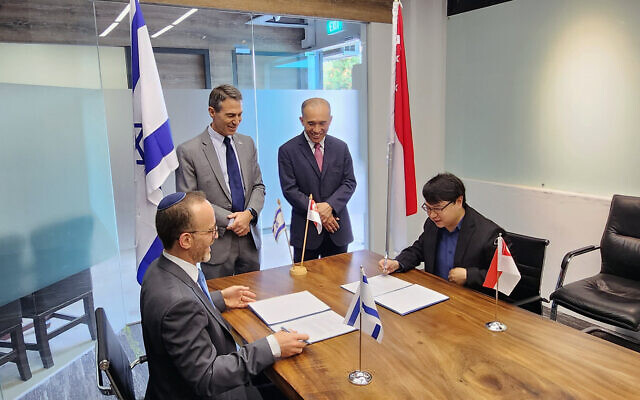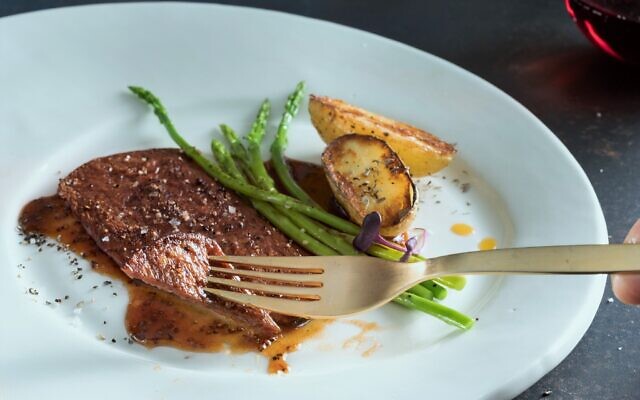Startup plans to operate the world’s first halal-certified facility for the production of cultivated meat in Singapore; buys Israel factory ahead of commercial launch
Aleph Farms is seeking to become the first halal-certified cultivated meat producer, as the Rehovot-based startup is gearing up to open two new facilities, in Israel and Singapore, to ramp up production ahead of the commercial launch of its thin-cut steaks.
The maker of cultivated meat — meat that comes from non-modified cattle cells — announced on Wednesday that it has inked a deal to buy a Modi’in-based manufacturing facility and related equipment from biotechnology company VBL Therapeutics for about $7.1 million. The new facility will be paired with the technology at the startup’s production site in Rehovot to boost local output and turn Israel into a hub for expansion in the region.
In parallel, Aleph said it entered into a partnership with Singapore’s ESCO Aster, a contract manufacturing organization, to establish a facility for the production of cultivated meat in the country with a capacity to produce 10 to 20 tons of its steaks per year. ESCO Aster is the first company that received full regulatory approval from the Singapore Food Agency and necessary certifications, to produce cultivated meat for commercial sales.
The two deals come as Aleph is targeting the commercial rollout of its first product, a cultivated thin-cut steak, for this year or 2024 pending regulatory approval in Israel and Singapore.
The startup is one of the main players in the growing Israeli food tech sector, which in recent years has become an important hub for cultured meat — a key subsector in the alternative protein market, which comprises plant-based substitutes for meat, dairy, and egg; cultured dairy, meat and seafood; insect proteins; and fermentation products and processes.
In the cultivated meat subsector, Israeli companies last year drew just over $105 million in investments, accounting for about 12% of total investments in the space worldwide and ranking second to the US.

To produce its meat, Aleph leverages the ability of animals to grow tissue muscle constantly and isolates the cells responsible. It then reproduces the optimal conditions for these cells to grow into tissue, basically growing meat outside the animal. The tissue is grown in tanks that act as fermenters, similar to those in a brewery. There the cells are nurtured and shaped into a 3D structure that makes the meat.
“Israel and Singapore are the first two markets where we intend to launch our cultivated thin-cut steak. Building up production capacity quickly in those locations while keeping capital investment lean provides a clear roadmap to scalability,” said Aleph co-founder and CEO Didier Toubia. “Beyond Israel and Singapore, we plan on building additional strategic assets worldwide as part of our effort to bring more security and resilience to food systems.”




